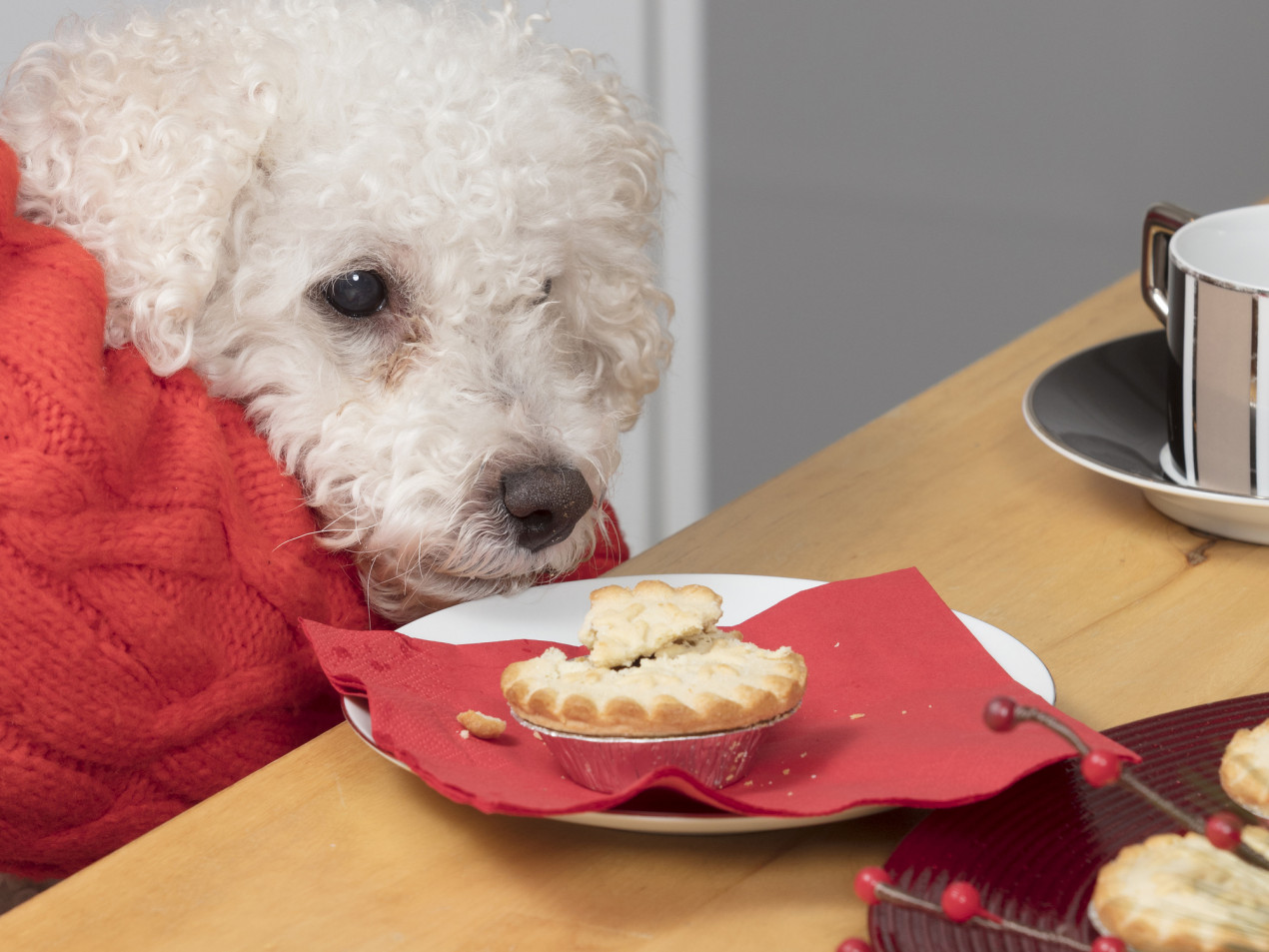We're here to help

Christmas warning to pet owners after dogs need emergency treatment for raisin poisoning
Emergency vets are bracing themselves for an influx of greedy dogs – who have eaten mince pies meant for Santa Claus.
Our nationwide network of out-of-hours clinics and pet emergency hospitals are expecting to see a dramatic rise in cases of raisin intoxication on both Christmas Eve and into Christmas morning.
The raisins in the festive sweet treats are highly toxic to dogs and eating them can lead to sickness, diarrhoea and potentially fatal kidney failure.
We have compiled an advice guide on what to do if a dog eats raisins – or foods including them such as mince pies and fruit cake.

Laura Playforth, professional standards director at Vets Now, said: “Our vets and vet nurses treated dozens of dogs last year who had eaten mince pies left out for Santa and we are expecting similar this year. That’s why it’s important to raise awareness that the raisins in mince pies are toxic to dogs.”
One emergency vet, in Vets Now Telford, treated several pie-munching dogs in three hectic hours on the morning of Christmas Day.
One of those was three-year-old cockapoo Ernie, who swiped a mince pie left under the Christmas tree for Santa – and the carrot left for the reindeer, too.
While the carrot did him no harm, the pie made him badly sick overnight. But it was only on Christmas morning that owner Jodie Holt went into the sitting room and realised what had happened.
Mum-of-two Jodie, 31, who is a nurse, said: “As soon as I saw the mince pie had gone, I started googling it and saw how dangerous raisins can be for dogs. Ernie’s not normally a scavenger and he usually comes upstairs when we all go to bed.
“So when he was poorly it never occurred to me that it was because he’d been downstairs and eaten Santa’s mince pie. It was a pretty chaotic start to Christmas Day but luckily we live in Telford so we didn’t have far to go.”
Vets made Ernie sick to get rid of any raisins in his stomach before giving him activated charcoal to absorb the toxins. Thankfully, both he and Jodie were home by lunchtime to see Jodie’s then two-year-old daughter Olivia finally get to unwrap her presents.
Jodie said: “Maybe it was the brandy in the pie that Ernie was after. But either way I’ll be making sure Santa gets the pie this year and Ernie doesn’t get anywhere near it!”

Four-year-old miniature Dachshund Beatrice was another who couldn’t resist grabbing a mince pie left out on a plate under the mantelpiece. Beatrice’s owner, Lucie Coffey, rushed her to Vets Now at midnight on Christmas Eve after realising what had happened.
Healthcare worker Lucie, 33, from Shrewsbury, Shropshire, said: “I was in the kitchen chopping vegetables for the Christmas dinner and Beatrice was on the sofa in the living room.
“When I went back in I saw the foil on the plate but no pie and I thought, ‘Right, there’s only one explanation for this.’ And there was the dog looking very sheepish. It was my nine-year-old daughter Grace who’d left it out for Santa then went up to bed. So I had to get my sister to come round while I trekked off to Vets Now.
“We were there about three hours getting everything checked out and tested. I couldn’t have lived with myself if we hadn’t taken her to get checked out and something was badly wrong.
“The staff explained to me that smaller dogs like Beatrice are more likely to suffer poisoning from raisins.”
Beatrice was given an injection to induce vomiting and then activated charcoal to reduce the chances of the toxins from the raisins being absorbed.
Lucie added: “By Christmas night she was pretty much back to her normal self – but you just don’t want to take any chances. A dog is part of your family and I would have been devastated if anything had happened to her.
“This year Santa’s mince pie is definitely staying outside with the carrot for Rudolph at the back door – out of harm’s way!”

All grapes, raisins, currants and sultanas can be poisonous to dogs and the dried versions of the fruits are more frequently associated with severe symptoms.
It’s unclear exactly what causes the toxic effects but just one can be toxic so caution should be taken with foods that contain them.
Laura Playforth added: “The good news is the prognosis for grape and raisin toxicity is generally good if treated early and there’s been no kidney damage.
“Normally symptoms start showing between six and 24 hours after the dog has eaten grapes or raisins. But these may not take effect for several days and in the most serious cases, the fruits can also cause sudden kidney failure.
“If you think your dog has eaten grapes, raisins, sultanas or currants, or anything containing them, you should telephone your vet immediately or, out of hours, your nearest Vets Now pet emergency clinic.”
The Vets Now clinic in Telford – where Beatrice and Ernie received treatment – was recently rated as “outstanding” in the delivery of emergency and critical care by the Royal College of Veterinary Surgeons.
It is one of 61 Vets Now clinics and pet emergency hospitals across the UK that are open through the night, seven-days-a-week, and day and night on weekends and bank holidays, to treat any pet emergencies that may occur.
All of Vets Now’s premises have a vet and vet nurse on site at all times.
